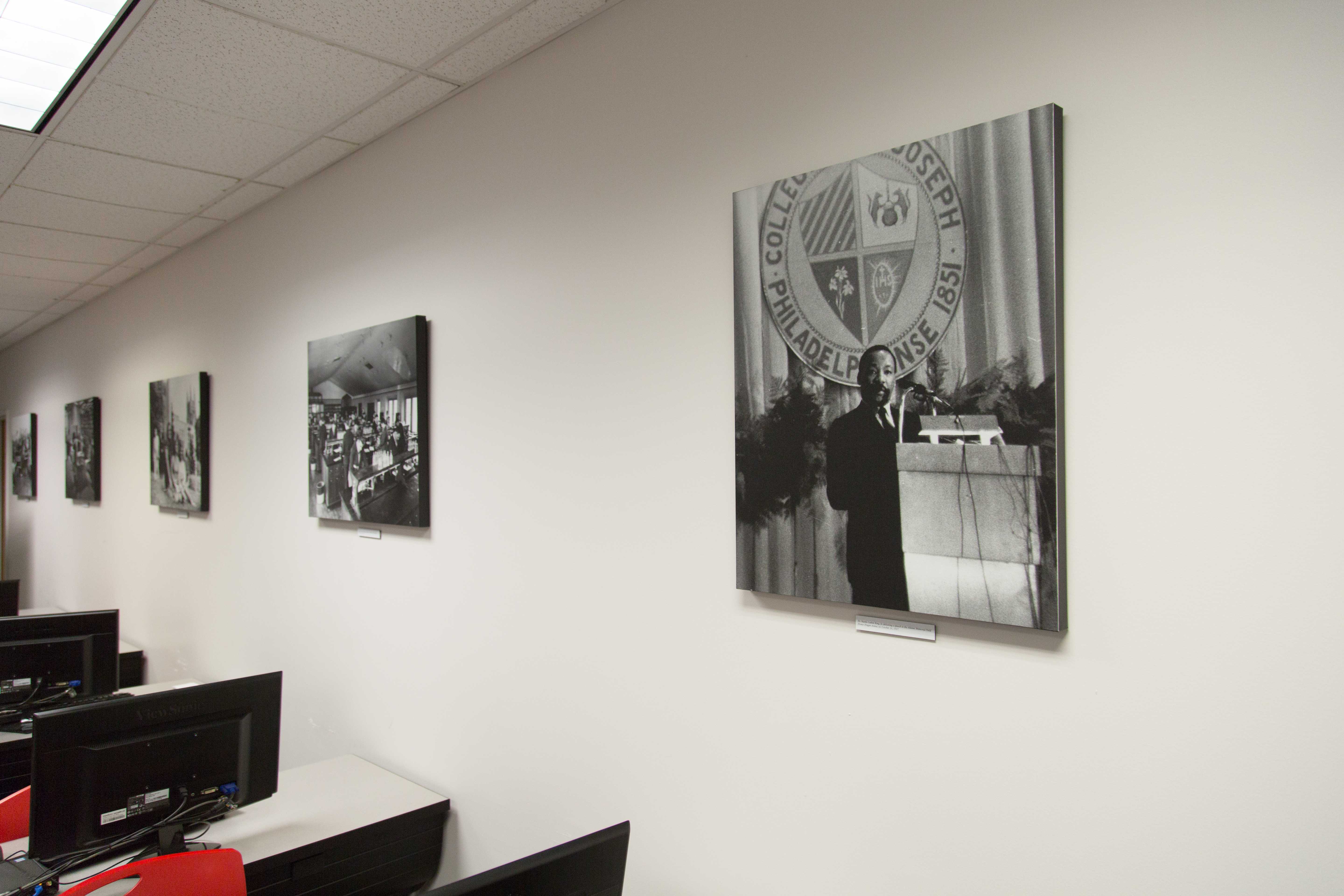Event compares biblical story to current struggles
Black History Month programming at Saint Joseph’s University continued on Feb. 15 with a lecture from Nyasha Junior, Ph.D., assistant professor of Hebrew Bible at Temple University’s department of religion. Close to 40 students, faculty, and staff attended the event in Campion Student Center’s North Lounge.
Junior’s talk, “Jephthah’s Daughter: Gender, Bible, and #SayHerName,” was part of the Sister Thea Bowman Lecture Series. Bowman, a nun of the Franciscan Order, dedicated much of her life to fighting prejudice and bridging racial divides, and the educational lectures given in her name share these goals. Junior’s event explored how a little-known story from the Book of Judges can inform modern black and feminist activism.
“Biblical texts can’t parallel our modern experiences,” Junior said during her lecture, “but they can prompt important questions.”
The story of Jephthah’s daughter is only 11 verses long, but it prompted a lively discussion at the event. In the story, a man named Jephthah makes a wartime vow with God in order to ensure the success of his army. Jephthah promises that if God delivers him a victory, he will sacrifice the first thing to greet him when he arrives home from battle. The foolish vow results in Jephthah having to kill his own daughter, who, after two months of reflection and mourning, submits herself willingly to the sacrifice.
“We don’t want to talk about this violence in the Bible because we don’t want to talk about it in our everyday lives,” Junior said.
Junior connected the violence committed against Jephthah’s daughter to that carried out against black women in America, primarily by police. She pointed out that just as Jephthah’s daughter is not deemed important enough to have a name in the Bible passage, many black women killed by police also remain anonymous—the names Aiyana Stanley-Jones, Korryn Gaines, and Alberta Spruill are not familiar to most Americans, but these women were all victims of police brutality. The #SayHerName movement is an effort to raise awareness about these female victims.
“The lecture was detailed and explained how these innocent black people were killed,” said Michael Walker, ’19. “I realized the importance of the #SayHerName in stopping police brutality with women.”

(Photo by Luke Malanga ’20).
Junior believes that the story of Jephthah’s daughter can help students make these connections.
“[It’s] yet another narrative of the expendability of women and their bodies,” Junior said. “It’s a text that causes us to ask, ‘Which lives matter?’”
Megan Bevilacqua, ’19, attended the event and recognized its potential impact.
“It’s very interesting to connect biblical stories to modern day,” Belivacqua said, “[And] it’s important to pay special attention to women and the role that they play in Black History Month.”
“Jephthah’s Daughter: Gender, Bible, and #SayHerName” is part of the Black History Month programming planned by the Office of Inclusion and Diversity (OID).
According to statistics from the Office of Student Records and Financial Services, the percentage of black students at St Joe’s has increased since 2012, but only very slightly. The class of 2012 was 2.6 percent black/African American, and the class of 2015—the most recent class for which the data is available— was 3.8 percent black/African American. For the last five years, the graduating classes of St. Joe’s have ranged between 83 and 85 percent white.
The university and the OID have acknowledged this lack of racial diversity and stated that St. Joe’s is taking steps to be more inclusive. In March of 2016, University President Mark C. Reed, Ed.D., announced the creation of the President’s Council on Inclusion and Diversity, a group meant to “promote, support and expand the culture of diversity on our campus.”
The lecture addressed the same issues of racial disparity and injustice. It concluded with a question and answer session led by Junior. Attendees asked questions about the story, the use of biblical texts to further modern causes, and the connections between Jephthah’s daughter and black women who are victims of police brutality.
Junior stated that using texts such as the story of Jephthah’s daughter to better understand our current environment is an opportunity for important conversation and change, especially in her religious classes at Temple.
“I don’t call what I’m doing subversive, feminist, or womanist,” Junior said. “I simply say, ‘Let’s read together and see what happens.’”














































